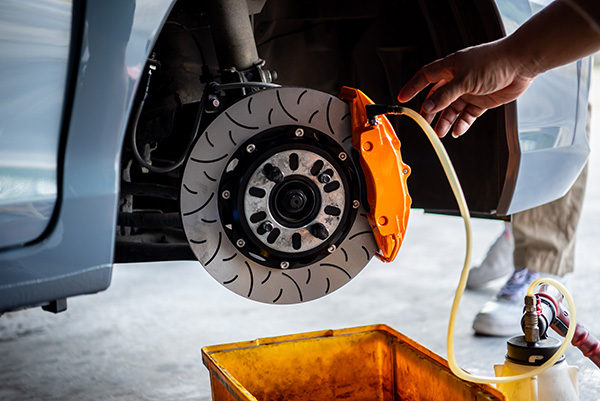
When it comes to your vehicle's safety, brakes are the most crucial component. But what happens when there's air in your brake system? Is it really that dangerous? Let's look into the nitty-gritty and find out why this seemingly small issue can have serious consequences.
The Basics of the Brake System
Your car's brake system is an intricate network designed to bring your vehicle to a halt safely and efficiently. It operates on hydraulic pressure, where brake fluid transmits the force from your brake pedal to the brake pads, which then clamp down on the rotors to stop your car. This process should be seamless, but introducing air into the system can throw a wrench in the works.
How Air Gets into the Brake System
- Poor Maintenance: Failing to regularly check and maintain your brake fluid can lead to air seeping into the system.
- Leaks: Small cracks or leaks in the brake lines can allow air to enter.
- Improper Bleeding: When the brake system is not properly bled during maintenance or repairs, air pockets can remain.
- Aging Components: Over time, seals and lines can deteriorate, increasing the likelihood of air infiltration.
The Dangers of Air in the Brake System
Why is air in your brake system dangerous? The primary issue is that air is compressible, while brake fluid is not. When you press the brake pedal with air in the system, the pedal feels spongy, and the brakes respond sluggishly. This can be perilous, especially in emergency situations where every millisecond counts.
Reduced braking efficiency is a significant concern. With air in the system, your brakes won't engage as quickly or as firmly, increasing stopping distances. The brake pedal may feel soft or spongy, making it difficult to gauge how much pressure is needed.
Ineffective braking can lead to accidents, especially in high-speed or emergency braking scenarios. In extreme cases, air in the brake system can lead to total brake failure, putting you and others at risk.
Symptoms of Air in Your Brake System
- Soft or Spongy Brake Pedal: If your brake pedal feels soft or requires more pressure than usual, air might be the culprit.
- Brake Pedal Sinks: When the brake pedal sinks to the floor with little resistance, it's a clear sign of air or other issues in the system.
- Noisy Brakes: Squeaking or squealing sounds when braking can also indicate air in the lines.
- Poor Brake Performance: If your vehicle takes longer to stop or doesn't stop as effectively, it's time to check for air in the system.
How to Fix Air in the Brake System
If you suspect air in your brake system, it's crucial to address it immediately. The most common method to fix this issue is to bleed the brakes, which involves removing air from the brake lines. Inspecting the brake lines and components for leaks and replacing any damaged parts is essential.
Over time, brake fluid can absorb moisture and become less effective, so replacing it can improve brake performance. If you're not confident in fixing the issue yourself, it's best to take your vehicle to Griffin Muffler & Brake Center.
Prevention Tips
- Regular Maintenance: Have your brake system checked and maintained regularly.
- Check Brake Fluid:Ensure your brake fluid is at the correct level and top it up if necessary.
- Replace Old Components: Replace aging or worn brake lines and seals before they fail.
- Professional Service: Have your brakes serviced by professionals who can properly bleed the system and check for potential issues.
Air in the brake lines is not a problem drivers should take lightly. If you are experiencing brake problems, similar to those mentioned above, please do not hesitate to schedule a brake system check at Griffin Muffler & Brake Center now!